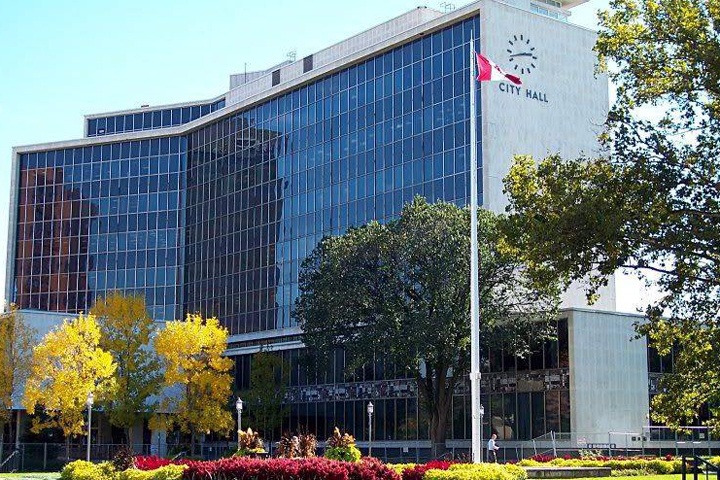Hamilton residents who have questions about the new coronavirus disease, COVID-19, will have a chance to get some answers Wednesday evening.

The City of Hamilton is holding another virtual town hall meeting starting at 7 p.m.
The town hall will include Hamilton Mayor Fred Eisenberger, a representative from the city’s office of medical health and the director of the city’s emergency operations centre (EOC), Paul Johnson.
Residents can submit questions on the city’s website at www.hamilton.ca/askcovidquestions and via its Twitter account, @cityofhamilton.
The town hall will be broadcast live on 900 CHML and streamed live on the City of Hamilton’s YouTube channel.
Hamilton Public Health confirmed 183 cases of COVID-19 in the city on Tuesday, with 19 people in city hospitals receiving treatment for the disease: 12 at Hamilton Health Sciences facilities and seven at St. Joseph’s.
Five deaths in the city have been connected to the virus, according to public health.
The last two deaths were reported on Monday, including the first male patient to succumb to the illness: an 89-year-old in the community who passed away in hospital.
An 80-year-old female patient from the transitional care unit at the Cardinal Retirement Residence on Herkimer Street is also reported to have died.
Outbreaks of the new coronavirus have been declared at three of the city’s long-term care homes: Heritage Green, Cardinal Residences and Wentworth Lodge.
Meanwhile, the city has also declared an outbreak of the novel coronavirus at St. Joseph’s special care nursery on the Charlton campus after three workers tested positive for the virus earlier this week.
In a conference call on Tuesday, the city’s medical officer of health, Dr. Elizabeth Richardson, says the number of cases are doubling, on average, every five days.

Get daily National news
“That’s why, for anybody who is sick, it is very important that if they have any symptoms whatsoever that they stay home,” Richardson said.

Since mid-March, the City of Hamilton has put in place aggressive measures to prevent the spread of COVID-19, closing all municipal facilities and outdoor recreation areas.
Hamilton Conservation Authority (HCA) closed all of its conservation areas as well. The HCA warns that anyone entering any of its attractions will be considered trespassing and subject to fines.
On Monday, Hamilton’s mayor told residents to “get with the program” in relation to social-distancing rules in effect around the novel coronavirus pandemic.
Eisenberger says the “vast majority” of people are doing the right thing to help control the spread of COVID-19, but he was frustrated when the city’s bylaw office revealed 32 tickets were handed out by officers for trespassing at parks, trails and golf courses on the weekend.
On Monday, the bylaw office revealed that the city’s golf courses — Chedoke, Willow Valley, Chippewa and Mystic — reported visitors despite being closed, and others reportedly went to some of the city’s five-city escarpment stairs and illegally removed barricades.

“We are seeing people removing some of our barricades and fencing in these areas,” director of licensing and bylaw enforcement Ken Leendertse said in a release.
“Getting caught on the stairs could hold a fine of $750. Removing or defacing city barricades could be a criminal charge of mischief.”
Meanwhile, Hamilton will offer some property tax relief in the form of deferrals, which will waive late fees and administration charges for those who can’t pay in April and May.

However, Eisenberger says those who can continue to pay their taxes should do so since the city “needs the cash flow.”
The city says it has seen a significant decline in transit and program revenues, as well as a major spike in COVID-19-related costs in terms of shelters, support for seniors and other areas.
Questions about COVID-19? Here are some things you need to know:
Health officials caution against all international travel. Returning travellers are legally obligated to self-isolate for 14 days, beginning March 26, in case they develop symptoms and to prevent spreading the virus to others. Some provinces and territories have also implemented additional recommendations or enforcement measures to ensure those returning to the area self-isolate.
Symptoms can include fever, cough and difficulty breathing — very similar to a cold or flu. Some people can develop a more severe illness. People most at risk of this include older adults and people with severe chronic medical conditions like heart, lung or kidney disease. If you develop symptoms, contact public health authorities.
To prevent the virus from spreading, experts recommend frequent handwashing and coughing into your sleeve. They also recommend minimizing contact with others, staying home as much as possible and maintaining a distance of two metres from other people if you go out.
For full COVID-19 coverage from Global News, click here.









Comments